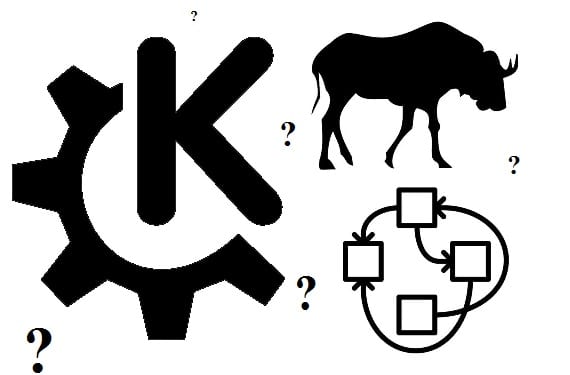
Everyone knows what the GNU project is, the KDE environment, the Hurd kernel, ... but have we really stopped to think about the meaning of its acronyms? With this article I do not mean to insult these projects, since they are great and nobody disputes their quality, but perhaps the names do not do justice to what they are really representing.
We all know where the acronym for GNUAs you know, it is a recursive acronym that means "GNU is not Unix". As we can see it is recursive since GNU reappears in the definition. The idea was to show that although it was a project to create a Unix-like operating system but without being a registered Unix.
So far it seems normal, but what about Hurd... this recursive name is nowhere to be found. Hurd is the acronym for "Hird of Unix-Replacing Daemons" and in turn Hird is the acronym for "Hurd Interfaces Representing Depth". A whole doll of Russian words and acronyms. GNU Hurd It was intended to be the kernel that the GNU project was missing, but if you develop it all together you have "GNU is Not Unix Hird of Unix-Replacing Daemons from Hurd of Interfaces Representing Depth". All gibberish ...
Other projects like KDE they also give something to talk about. In principle KDE was the acronym for "Kool Desktop Environment", but someone from the project did not like the idea of that "Kool" and finally it became "K Desktop Environment" or "K Desktop Environment", as it is known today. day. Someone took the "freshness" from the project with a stroke of the pen and thank goodness they did ... because Cool written with K was not the best for such a serious and important project.
More information - GNU Hurd 0.5: the new version of the free kernel